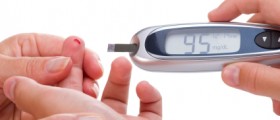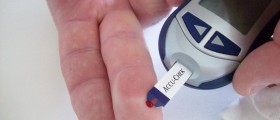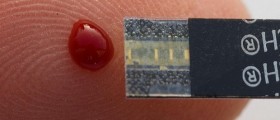
In type 1 diabetes, the pituitary gland does not produce the needed amounts of the hormone insulin, which regulates the blood sugar levels. In type 2 diabetes, the body cells do not recognize the insulin, so they do not respond to it, thus causing high blood sugar levels. Gestational diabetes refers to the type that is typical of pregnancy.
Diabetic coma and causes
Diabetes should be treated, because otherwise, even diabetic coma can occur. It is a possible life threatening complication, which leads to unconsciousness. The patient is alive when he/she is in diabetic coma, but he/she cannot wake up and respond to various stimulations. Diabetic coma is usually caused by levels of glucose in the blood which are either too high or too low.
It is considered that diabetic ketoacidosis leads to the occurrence of diabetic coma. Diabetic ketoacidosis usually affects patients who suffer from type 1 diabetes. Ketones are toxic acids formed when the body breaks down fat stores, which happens when the muscle cells needs energy.
Diabetic coma may also be caused by diabetic hyperosmolar syndrome, which is typical for type 2 diabetes. In this condition, the sugar levels increase too much, thus causing the blood to become thick and syrupy. When the high amounts of sugar pass into urine from the blood, the filtering process starts. This process requires lots of fluid, which is why dehydration and diabetic coma occur.
Symptoms of diabetic coma
Symptoms that are practically inevitable in cases of high blood sugar levels or hyperglycemia are increased thirst and frequent urination. Furthermore, rapid heartbeat, dry mouth, nausea, vomiting and shortness of breath may also appear when hyperglycemia is in question. Fatigue, stomach pain and fruity breath odor are also some of the signs of high blood sugar levels.
On the other side, when the levels of blood sugar are lower than normal, the patients usually experience increased hunger, nervousness and shaking, as well as excessive sweating and extreme tiredness. Moreover, low blood sugar levels may also cause irritation, confusion and hostile and even aggressive behavior. In severe cases, hypoglycemia unawareness may occur without any warning sign.
Since diabetic coma is a very serious condition, the people who experience the signs of low or high blood sugar levels should keep them under control and seek a medical attention when the symptoms are serious.
- medlineplus.gov/ency/article/000304.htm
- www.betterhealth.vic.gov.au/health/ConditionsAndTreatments/diabetic-coma
- Photo courtesy of http://www.scientificanimations.com/ via https://simple.wikipedia.org/wiki/Diabetes_mellitus#/media/File:3D_medical_animation_still_of_Diabetes.jpg

















Your thoughts on this
Loading...